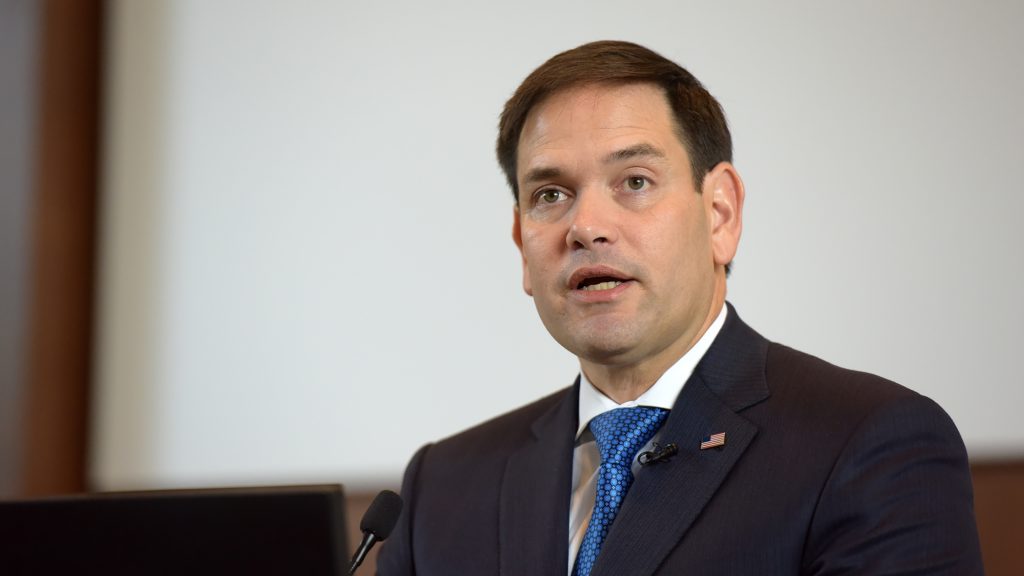ROME – Florida Senator Marco Rubio called on the international community to hold President Daniel Ortega and his wife, Vice President Rosario Murillo accountable for their persecution of the Catholic Church.
In an interview with Angelus Jan. 9, Rubio denounced the continued arrest and imprisonment of clergy in the country by “the criminal Ortega and Murillo authoritarian dynasty” who have “for years, threatened Nicaragua’s democratic future.”
“It’s time for the international community to confront this threat and hold these tyrants accountable for their countless crimes,” he said.
In December, Nicaraguan police arrested Bishop Isidoro Mora of Siuna, as well as four priests — Msgr. Miguel Mantica, and Fathers Mikel Monterrey, Gerardo Rodriguez, and Raul Zamora — after expressing support for Bishop Rolando José Álvarez of Matagalpa.
Bishop Alvarez, who publicly criticized the government, was sentenced to 26 years in prison for several charges, including treason and spreading false news. The prison sentence came after the bishop refused to be exiled to the United States.
Rubio told Angelus that the latest arrests were indicative of “how a criminal and vile dictatorship operates.”
“Ortega and Murillo have consistently persecuted members of the Catholic Church and will attempt to censor any voice of dissent in their nation.,” he said. “Our Catholic brothers and sisters in Nicaragua carry a heavy cross as they remain targets of repression and religious persecution.”
In June, Rubio, a Republican, and Democrat Senator Tim Kaine of Virginia co-sponsored the “Restoring Sovereignty and Human Rights in Nicaragua Act of 2023,” a bill that would impose sanctions against Ortega’s government.
The bipartisan bill cited Ortega’s persecution of the Catholic Church, the arrest and torture of citizens, and expressed concern over his support of Russia and its invasion of Ukraine, which “poses a significant threat to global peace and stability in the Western Hemisphere.”
The Florida senator also wrote a letter to Pope Francis Dec. 13 urging him to call for Álvarez’s release, citing recently revealed evidence “that strongly suggest that Bishop Álvarez has endured torture at the hands of the Ortega regime.”
Rubio said that while his office has not yet received a response from the pope or the Vatican, he was encouraged “to hear the Holy Father mention the plight endured by Catholics in Nicaragua in recent days.”
In his Angelus address Jan. 1, Francis expressed “deep concern” for the Catholic Church in the country “where bishops and priests have been deprived of their freedom.”
“I also invite all of you present here, and all the people of God, to pray insistently; meanwhile I hope that we will always seek the path of dialogue to overcome difficulties. Let us pray for Nicaragua today,” the pope told pilgrims gathered in St. Peter’s Square.
“As the leader of the Catholic Church, Pope Francis’ voice and advocacy against religious persecution is important,” Rubio told Angelus.
“Unfortunately, Ortega and Murillo will repress anyone who they see as a threat to their illegitimate grip on power,” he added. “I pray Nicaraguans get to live out their faith without fear of persecution and repression.”

